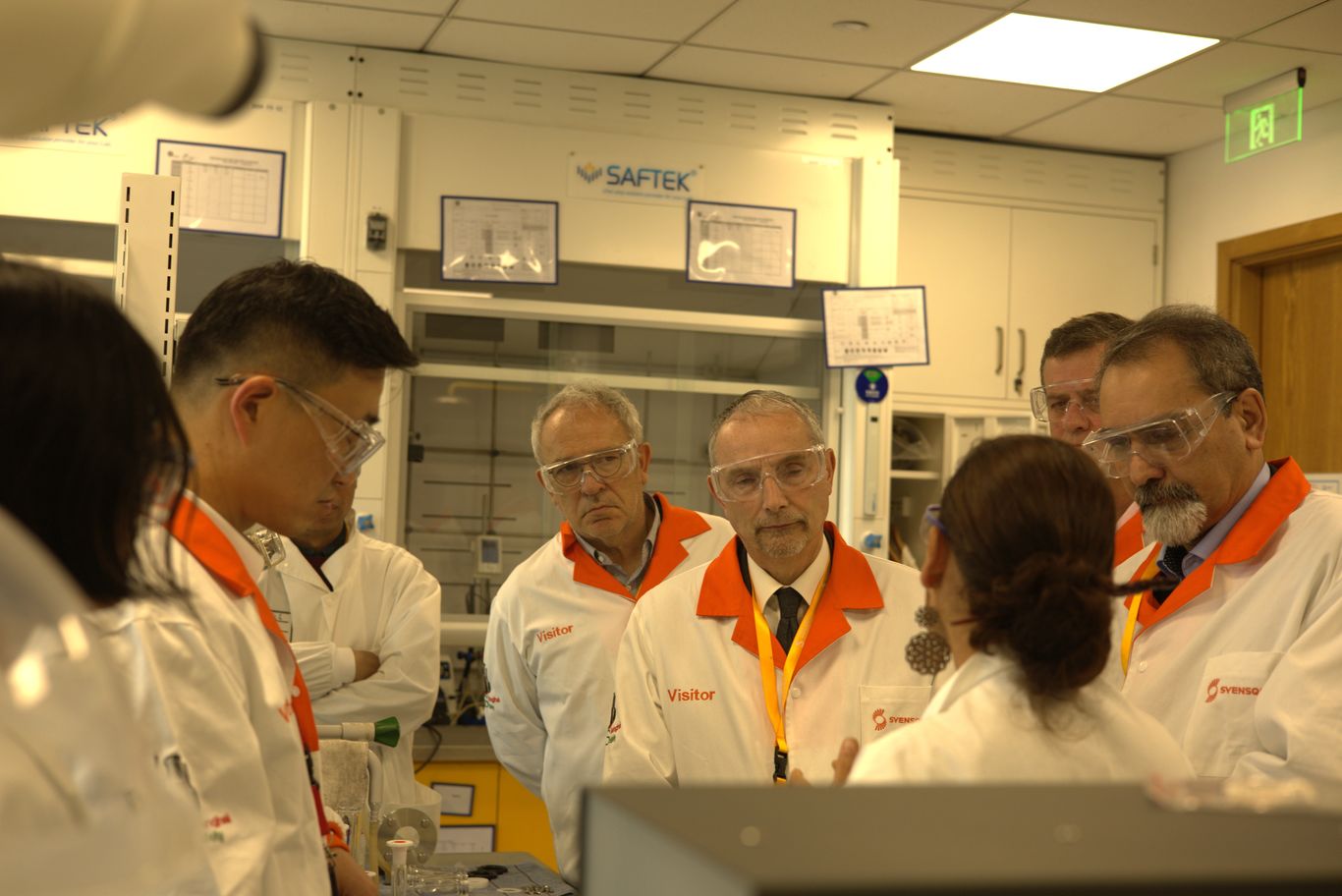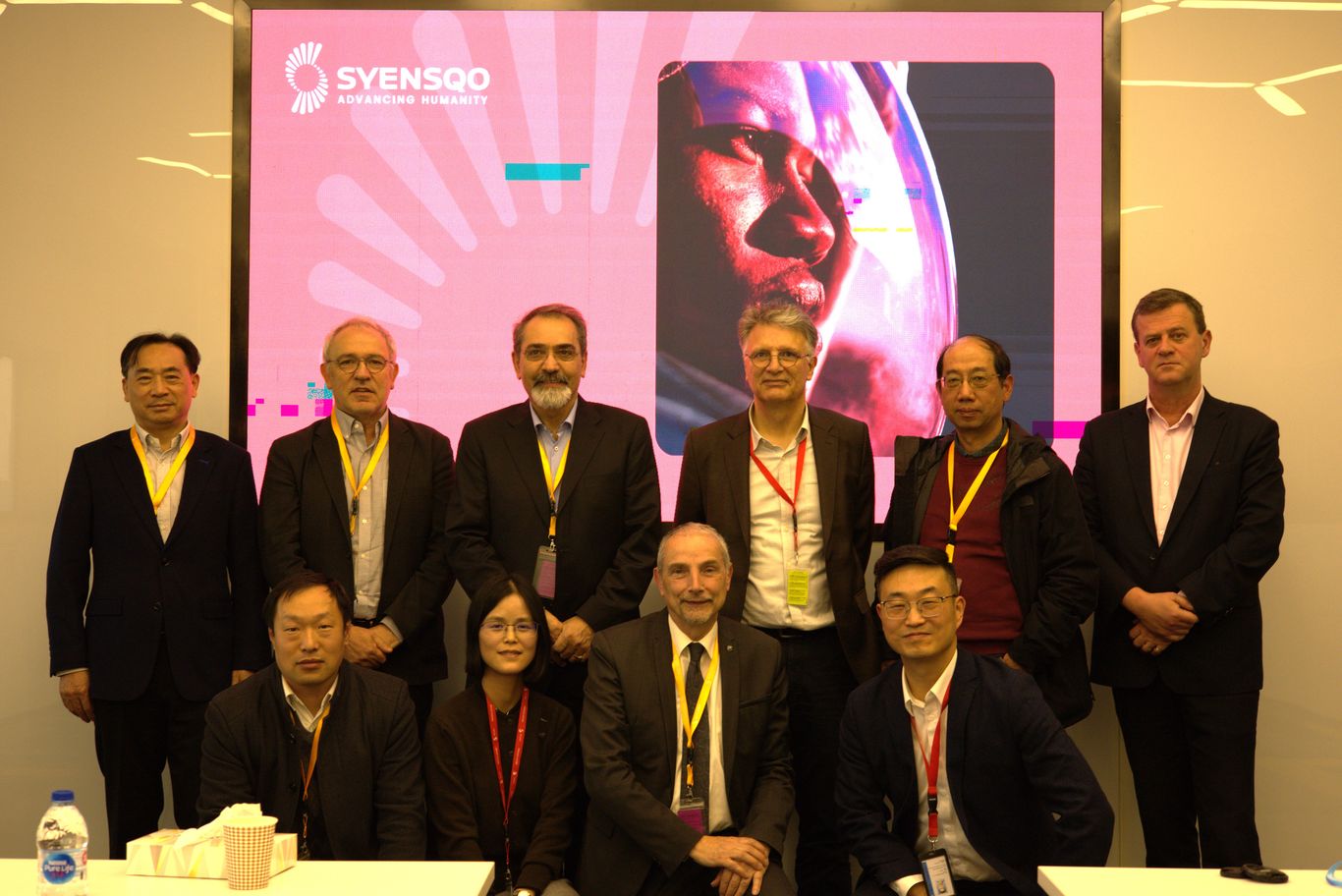From 11th to 12th of March 2024, Dr. Jacques Maddaluno (Director of the CNRS Institute of Chemistry), Dr. Mehran Mostafavi (Deputy Scientific Director of the CNRS Institute of Chemistry), and Dr. Philippe Arnaud (Director of the CNRS Beijing office) visited the Eco-Efficient Products and Processes Laboratory (E2P2L) in Shanghai, accompanied by Xavier Assfeld, Attaché for Science and Technology of the Consulate General of France in Shanghai. Due to the COVID pandemic, this was the first visit of the CNRS delegation to E2P2L following the last visit in 2018 of the French Minister of Higher Education, Research and Innovation, and President of CNRS. E2P2L is one of the two International Research Laboratories (IRL) on chemistry for CNRS and the only IRL on chemistry in China.
The visit started in the morning with a Syensqo introduction by Syensqo Head of R&I, Pascal Métivier, followed by an E2P2L introduction by E2P2L Director, Jianxia Zheng. During the afternoon, space was given to the E2P2L researchers to showcase the latest advancements and developments. Later in the day, a visit to the Syensqo Shanghai Research Innovation Center was organized and led by Syensqo Shanghai R&I Director, Howard Hao. The first day was concluded by discussing with E2P2L’s Chinese partners, East China Normal University (ECNU), Fudan University, and East China University of Science and Technology (ECUST) on how to strengthen future collaborations. The second half day was dedicated to exchange meetings with the two CNRS researchers working in E2P2L, Jérémie Zaffran and Tao Jiang in E2P2L, as well as with the E2P2L researcher representatives. After lunch, the CNRS delegation visited the E2P2 labs before departure.
After a one and a half day visit to E2P2L, the CNRS delegation was impressed by E2P2L’s transformative efforts from traditional chemistry to forefront chemistry using digital tools, such as computational chemistry, machine learning and artificial intelligence (AI). In particular, their incorporation in the Plastiloop 2.0 initiative sparked great interest among the delegation members. Plastiloop 2.0 aims at designing a new pipeline that combines the power of high-throughput screening, machine learning (ML), and computational simulation, to achieve selective depolymerization and upcycling of aromatic polymers into monomers of high-performance polymers via sustainable approaches. The CNRS delegation expressed willingness to renew the collaboration with E2P2L, which at the present moment, will end in December 2025. In addition, CNRS and Syensqo agreed to develop electrochemistry in E2P2L in addition to its current research in catalysis and modeling.


